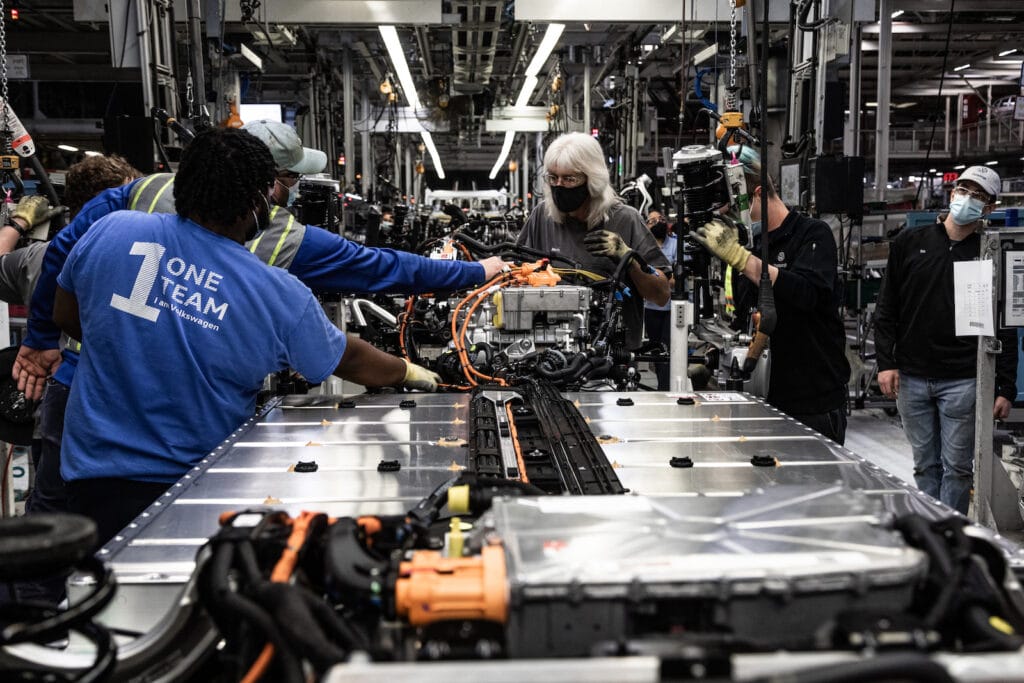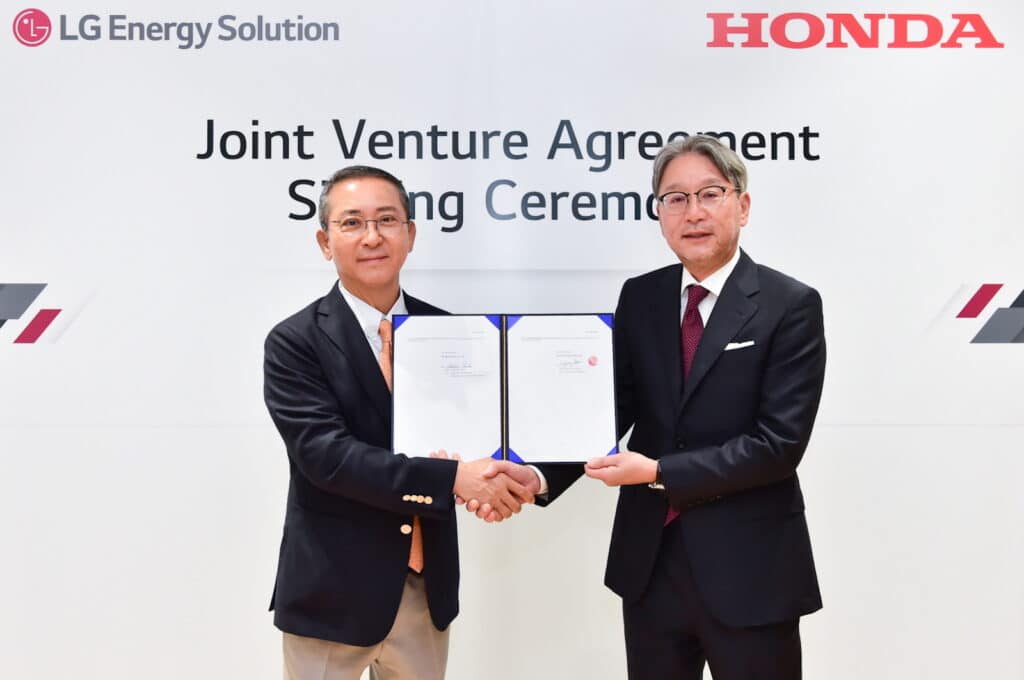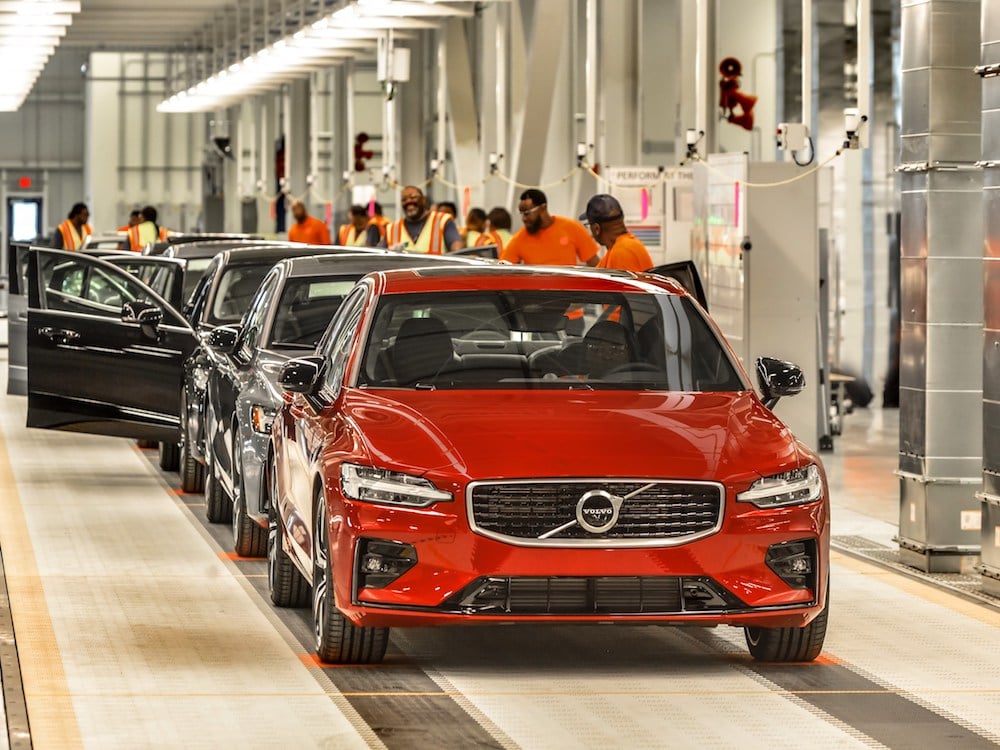Made in America Becoming a Priority Again Due to EV Battery Rules

Hyundai Motor Group said Tuesday it reached an agreement with South Korean battery manufacturer SK On Co. to supply power packs for its U.S.-built EVs to its forthcoming EV plant and battery manufacturing facility in Georgia.
Production is slated to start after 2025. However, neither the location nor the volume was specified. The agreement is part of the automaker’s aim to sell 3.23 million EVs annually worldwide by 2030.
It isn’t SK’s first U.S. venture. In May 2021, the battery manufacturer created a joint venture with Ford Motor Co. called BlueOval SK to manufacture battery cells and arrays in the U.S. at its forthcoming BlueOval City electric vehicle operation near Memphis and at two plants in Kentucky.
The move is one of many upcoming battery plants being constructed in the U.S. The Inflation Reduction Act has led to a significant increase in the number of future American factories being constructed to manufacture vehicle lithium-ion batteries for electric vehicles. The new measure sets tight requirements for domestic battery production and raw material sourcing before an EV is eligible for up to $7,500 in sales incentives.
Other manufacturing ventures

In late August, Honda and LG Energy Solutions announced a new joint venture that will see them spend a combined $4.4 billion to set up a new U.S. battery plant. The plant would join two battery manufacturing facilities being planned by Panasonic, which provides batteries for Tesla; one in Kansas, the other in Oklahoma. Panasonic currently builds batteries with Tesla at a plant in Nevada.
Also in August, General Motors and LG Energy Solution intend to build a $2.6 billion battery manufacturing facility in Lansing, Michigan that’s due to be operational by the end of 2024. And in May, Stellantis created a joint venture with Samsung SDI in May to build a $2.5 billion lithium-ion-battery plant in Kokomo, Indiana. Production is slated to begin in 2025.
But beyond batteries, U.S. manufacturing of vehicles is increasing as well.
On Tuesday, Lordstown Motors announced that its full-size battery electric pickup truck, the Lordstown Endurance, has achieved full homologation, clearing the way for the company to start customer sales.
Also on Tuesday, Automotive News reports that Volkswagen is in talks with Taiwanese smartphone manufacturer Foxconn to build its forthcoming Scout SUV, reviving the International Harvester model as a new line of electric SUVs. Foxconn entered vehicle contract manufacturing after acquiring Its Lordstown, Ohio plant from Lordstown Motors for $230 million. Lordstown bought the facility from General Motors in 2019. But Volkswagen is also talking with contract manufacturer Magna Steyr, which is contemplating opening a U.S. plant.
Boosting manufacturing

A number of foreign companies already building vehicles in the United States, such as BMW and Mercedes, are looking at more North American EV production. In October, BMW announced it will spend $1 billion to expand its Spartanburg plat to build EVs and invest $700 million in a new battery production plant in Woodruff, South Carolina. Similarly, Mercedes-Benz is building its all-electric seven-passenger full-size EQS and midsize EQE SUVs at the brand’s factory in Tuscaloosa, Alabama. And Volvo plans to have its Ridgeville, South Carolina plant operational by mid-2024. It’s the brand’s first U.S. manufacturing facility. And, in July, Volkswagen began building its all-electric ID.4 compact SUV at its factory in Chattanooga, Tennessee.
While some of these plants were already being planned prior to the Inflation Reduction Act’s passage, all are being boosted since its enactment.
“There’s a bigger push than there was six months ago,” said Sam Fiorani, vice president, Global Vehicle Forecasting at AutoForecast Solutions LLC, who credits the Inflation Reduction Act.
“The idea is to build up the infrastructure for electric vehicle production in North America and reduce reliance on Chinese manufacturers. The semiconductor crisis has pointed that out that key components can limit our production of anything, and automotive is such a key ingredient to the economy of the United States.”
The act aims to prevent key industries to be reliant on any foreign power.
“Making sure we don’t have that limitation anymore, is beneficial to our long-term growth,” Fiorani added.
Auto Lovers Land
Comments
Post a Comment